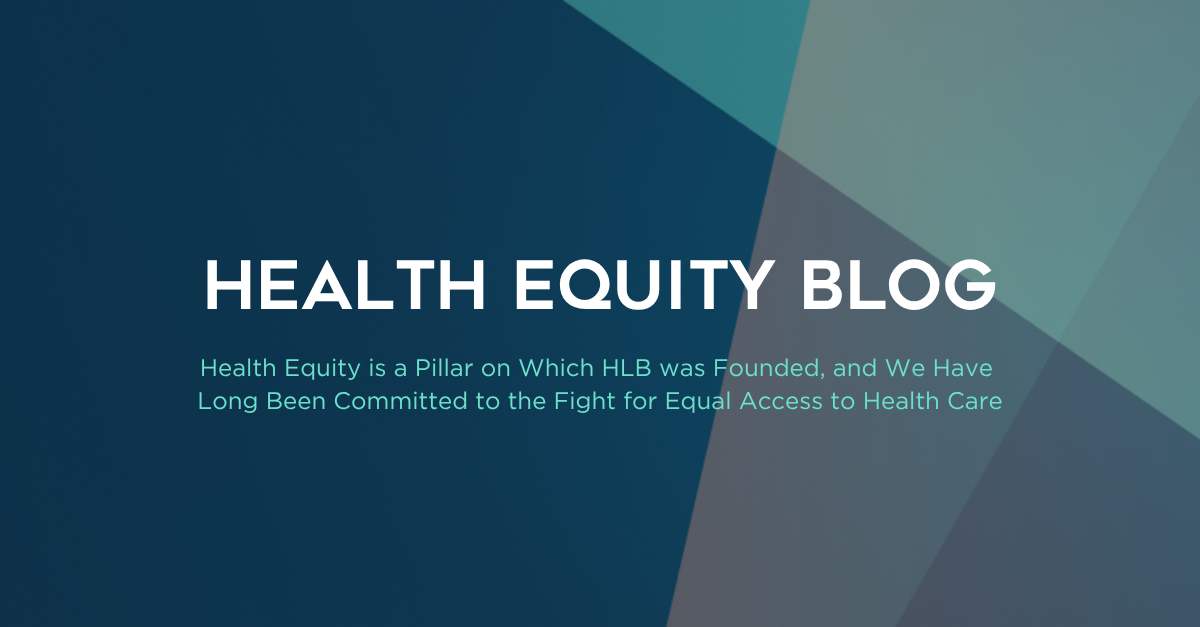
On behalf of the Hooper, Lundy & Bookman’s Health Equity Task Force, here is our most recent HLB Health Equity Essentials Update.
FDA ANNOUNCES, “HOME AS A HEALTH CARE HUB” PROGRAM
The latest measure by the Food and Drug Administration (FDA) to help reduce health care disparities and improve health outcomes for minorities and underserved populations aims to make health care services available to patients in their homes. Spurred by the proliferation of telehealth that occurred during the COVID-19 pandemic, the FDA’s Center for Devices and Radiological Health (CDRH) has retained an architectural firm to design a prototype home that is equipped with Augmented Reality/Virtual Reality (AR/VR) and other state-of-the-art technology that will help promote health equity. The FDA’s aspiration is that the Home as a Health Care Hub will also bring together policy makers, medical device developers, and providers to begin developing home-based solutions that further advance health equity.
CMS PUBLISHES NEW HEALTH EQUITY-RELATED DATA RESOURCE
Earlier this month, CMS released its Resource of Health Equity-Related Data Definitions, Standards, & Stratification Practices, which serves as a technical resource for organizations and others to use to align with CMS when collecting, stratifying, and/or analyzing health equity-related data. The guidance can also serve to reconcile discrepancies in results caused by relying upon different data standards and definitions. In that regard, this publication includes suggested definitions, standards, and stratification practices for numerous sociodemographic elements.
NURSE ADVOCACY GROUP URGES DHS TO RECOGNIZE NURSING AS A STEM FIELD
The Nursing is STEM Coalition is leading efforts by the nursing profession to end the current divide among federal agencies as to whether nursing should be considered a STEM occupation. The Department of Homeland Security (DHS) is its first targeted agency because adding nursing to DHS’s STEM Designated Program List would allow foreign nursing students to stay in the U.S. longer following graduation, thereby helping to alleviate the dire nursing shortage that continues to plague the health care industry. The Coalition notes that other federal agencies tend to follow DHS’s lead when deciding whether to recognize a discipline as a STEM field. Moreover, such broadened recognition could make additional federal monies available to expand nursing education, which would also help further reduce the U.S. nursing shortage.
CMS STRIVES TO INCREASE ACCESS TO TRANSPLANT WITH NEW MODEL
The Increasing Organ Transplant Access (IOTA), through the Centers for Medicare and Medicaid Innovation (CMMI) seeks to increase access to transplant through incentive opportunities for transplant hospitals and measurement based on number of transplants, organ acceptance rates and outcomes. Notably, aspects of the IOTA Model would promote health equity in the process since access to organ transplantation is often impacted by race and other socio-demographic characteristics. Toward this goal, two of the features the model would include a health equity adjustment for transplants performed on certain low-income populations and allow flexibilities to address social drivers of health.
NEW CMS/OCR RULE IMPLEMENTS MORE STRINGENT NONDISCRIMINATION REQUIREMENTS
On May 6, CMS and Office of Civil Rights (OCR) issued a final rule promulgated pursuant to Section 1557 of the ACA as a regulatory attempt to instill further protections against discrimination in health care. Among the new rule’s objectives are a broadening of physical/digital accessibility, decreased presence of language access barriers, and reduction of bias in health technology. In a nod to the growing prominence of AI usage in health care, the rule clarifies that nondiscrimination in health programs and activities applies to the use of AI, predictive analytics, clinical algorithms, and other technology tools.
HHS AMENDS HIPAA PRIVACY RULE TO STRENGTHEN SAFEGUARDS FOR REPRODUCTIVE HEALTH INFORMATION & OTHER REPRODUCTIVE LAW UPDATES
Still in the wake of the highly controversial Supreme Court of the United States (SCOTUS) 2022 Dobbs v. Jackson Women’s Health Organization decision, the Department of Health and Human Services (HHS) has amended the Privacy Rule to prohibit covered entities and their business associates from disclosing protected health information (PHI) for the purpose of investigating or imposing liability on individuals simply because they seek, obtain, provide, or facilitate reproductive health care that is lawful under applicable state law. (To read more about this regulation, please see HLB’s previous alert available here.)
On other reproductive law fronts, two forthcoming SCOTUS opinions could stand to have wide-reaching repercussions. One is FDA v. Alliance for Hippocratic Medicine, which will decide whether mifepristone – one of two FDA-approved medication abortion drugs – remains readily available in the U.S. The other, Moyle v. United States, will determine whether EMTALA’s requirement to provide “necessarily stabilizing treatment” preempts an Idaho law, in the emergency context, that bans most abortions.
STATES WITH ABORTION BANS RECEIVING FEWER APPLICANTS FOR RESIDENCY PROGRAMS
During the two years following the SCOTUS Dobbs decision that overturned Roe v. Wade, states with abortion bans are experiencing a waning interest from medical school graduates seeking residencies, particularly those applicants wishing to enter an OB/GYN or other residency program (e.g., family medicine) whose patients are most likely to be affected.
CLICK BELOW FOR MORE HLB HEALTH EQUITY UPDATES:
Health Equity BlogProfessional
If you have any questions, please reach out to Alicia Macklin, Sandi Krul, Monica Massaro, Kerry Sakimoto, or your regular HLB contact.



